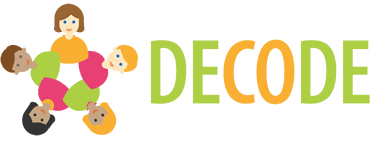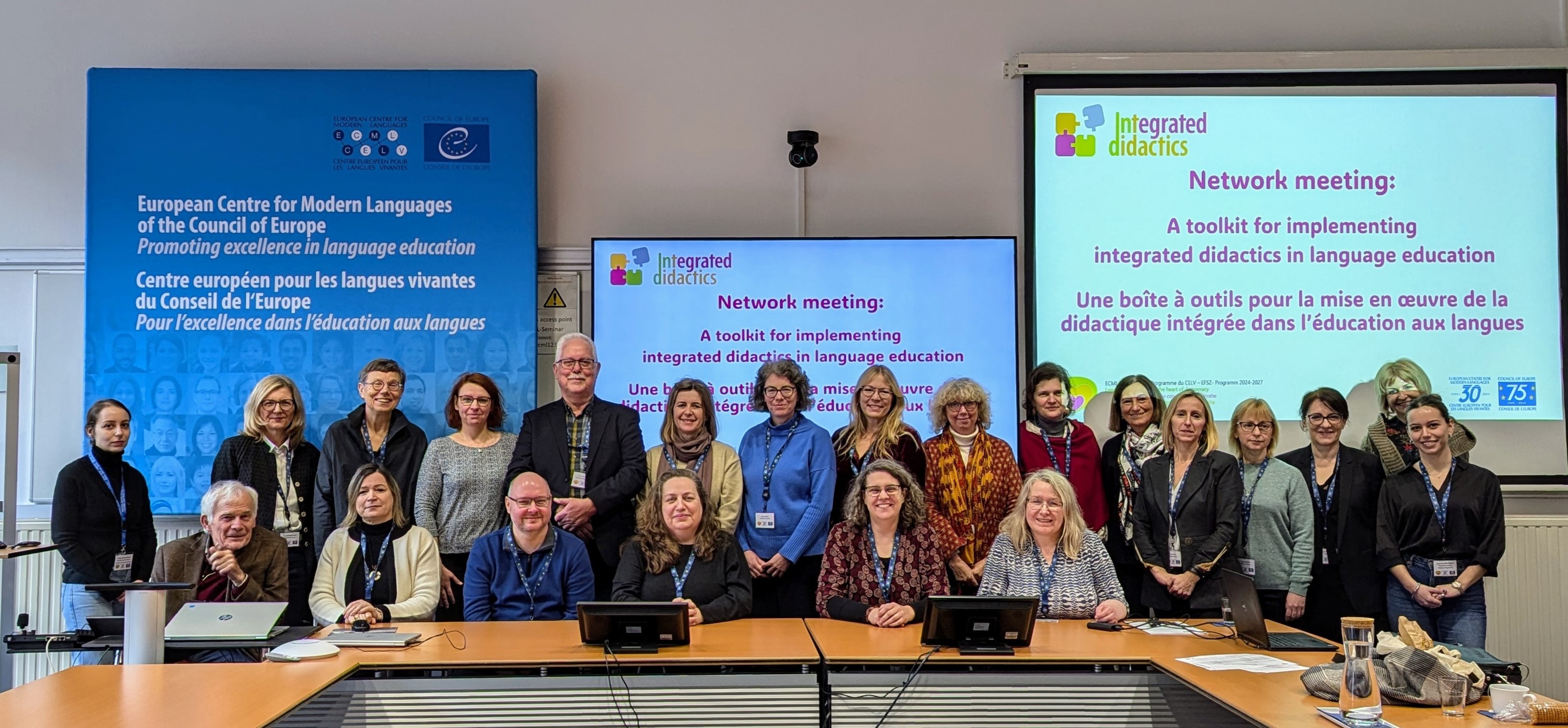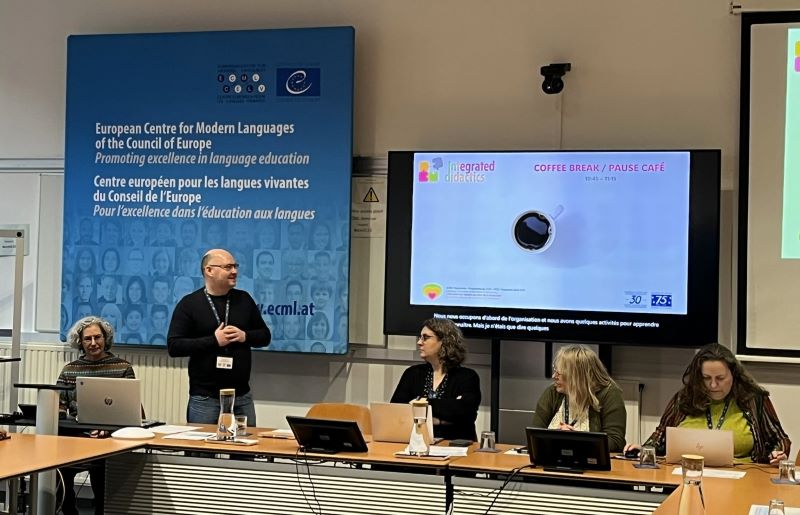Latest news items
19.03.2025
Projektstart „Kompetenzentwicklung für eine demokratische Kultur bei jungen Lernenden durch sprachliche Bildung“ (DECODE)

Ziel des Projekts ist die Entwicklung von Materialien für Kompetenzen der demokratischen Kultur (CDC) und Leitlinien für deren Umsetzung auf der Primarbildungsebene innerhalb des Referenzrahmens für Kompetenzen für demokratische Kultur
(Europarat, 2018). Während des Treffens haben die Mitglieder des Projektteams den ersten Entwurf der didaktischen Vorlage für die Entwicklung von Materialien für demokratischen Kultur erarbeitet, die Phasen für die Gestaltung der Materialien für demokratischen Kultur in Grundschulen festgelegt und die Tagesordnung für das im Juni 2025 geplante Netzwerktreffen erstellt.
Die Mitglieder des Projektteams sind: Martina Kramar, Projektkoordinatorin, Universität Augsburg, Deutschland; Manuela Svoboda, Universität Rijeka, Kroatien; Mai Trang Vu, Universität Umeå, Schweden; und Emina Jelešković, Internationale Universität Sarajewo, Bosnien und Herzegowina.
Die Teammitglieder trafen sich mit der Vertreterin des EFSZ, Susanna Slivensky, Vize- und Programmdirektorin. Die Programmberaterin des EFSZ, Chantal Muller, nahm ebenfalls an dem Expertinnentreffen teil und gab ihr Feedback zu den Ergebnissen des Treffens.
Das Team diskutierte und vereinbarte die nächsten Arbeitsschritte des Projekts, mit einem besonderen Schwerpunkt auf die für 2025 geplanten Aktivitäten.
Autorinnen: Emina Jelešković, Mai Trang Vu


24.01.2025
Advancing integrated didactics in language education

2024 saw the launch of the ECML project A toolkit for implementing integrated didactics in language education, which aims to provide educators with structured models and tools to address the linguistic repertoires of the learners in the language classrooms.
Key milestones of the year include the formulation of a definition of integrated didactics, refinement of the project scope for the next three years, and the elaboration of the first draft of the toolkit structure as a framework for the project outputs. A highlight was the network meeting in November, which brought together international experts to discuss the challenges and opportunities of implementing integrated didactics in language education. This event underlined the overall importance of this approach as a core element of plurilingual education.
Among the aspects that have been highlighted so far are the consideration of learners’ full linguistic repertoires as resources for facilitating the learning of a new language and the use of AI as a support for adapting materials to different contexts. Looking to the future, the project team is ready to broaden the impact of integrated didactics and ensure that it responds to the needs of the linguistic and cultural diversity in 21st century classrooms.
Christian Koch, Dolors Masats, Elżbieta Sielanko-Byford, Marie Steffens
• ECML project website “A toolkit for implementing integrated didactics in language education” (2024-27) (available in English and French): www.ecml.at/integrateddidactics
31.12.2024
International experts convene for the network meeting on integrated didactics
The team members of the ECML project on integrated didactics organised their network meeting in Graz on 27-28 November. The programme consultant and a group of 15 teacher educators and researchers from Croatia, the Czech Republic, Finland, France, Germany, Latvia, Norway, Poland, Portugal, Sweden, Switzerland, the Netherlands and Ukraine took part in this two-day event dedicated to discussing views on how to use learners’ linguistic repertoires to improve language teaching and learning.
On the first day, team members introduced and discussed with participants the aims and expected outcomes of the project, which is developing a toolkit for implementing integrated didactics in language education. Participants were also given the floor to present related projects. The second day was dedicated to exchanging perspectives on integrated didactics and exploring future collaboration. Team members led workshops to reflect on how to adapt materials to local contexts (Elżbieta Sielanko-Byford), how to link integrated didactics with migration contexts (Marie Steffens), how to use AI to support integrated didactics (Christian Koch) and how to consider this plurilingual approach from a holistic perspective (Dolors Masats). The meeting provided a valuable platform for the team members to have their proposals examined from different angles, which will undoubtedly be beneficial for the development of the project.
Christian Koch, Dolors Masats, Elżbieta Sielanko-Byford, Marie Steffens
- ECML project website “A toolkit for implementing integrated didactics in language education” (2024-2027): English – French


